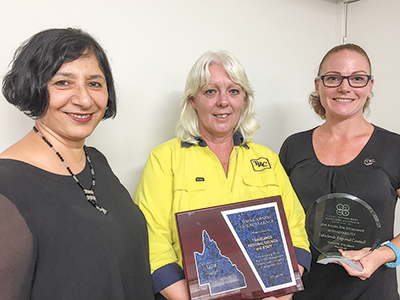Since amalgamating, Tablelands Regional Council (TRC) in Queensland has implemented an array of new initiatives to improve workplace health and safety outcomes.
Of note is the improved management of injured or ill workers, both work and non-work related.
Long-term work absences can have a negative impact on the individual and the employer; as a result of a long-term absence the worker can suffer from a loss of self-esteem and adverse physical, psychological, social and financial effects.
As an employer, there are the additional costs of lost productivity, recruitment and training of new employees, compensation claims and subsequently, increased worker’s compensation premiums.
Taking on board the social and corporate responsibility for effectively managing mental health and wellbeing in the workplace, Tablelands Regional Council has introduced ‘Stay At Work’ plans to increase the range of management options for non-work related illness.
This allows employees and their supervisor to participate in a confidential and respectful process designed to support and address the needs of the employee (financial, emotional and social) and the organisation (productivity where in the past there would have been a staff absence) while the employee is treated for and recovers from an illness.
An early return to work for an employee can improve and support their self-worth encourages a quicker recovery and return to their former lifestyle, often reducing the financial burden on the individual.
TRC also implemented a suite of comprehensive pre-employment medical and functional capacity assessments and procedures, including commencing a Service Level Agreement with an Occupational Physician (OP), to assist with the early and successful return to work of its workers, as well as supporting processes such as redeployment to alternate duties.
To ensure consistency and an open line of communication, TRC and the OP collaborate on all aspects of the process including the development of the medical documentation required and the identification of all job specific requirements on a case-by-case basis.
Targeted Worker’s Compensation training was implemented for all levels across the organisation and improved communications and networking with all stakteholders is now a priority.
These improvements to organisational awareness and processes have culminated in a significant return on investment by identifiable reductions in lost time, reduced Workcare premiums and improved injury prevention and management.
The most significant benefits are the absence of common law claims and improved productivity since the changes were introduced.
Tablelands Regional Council is now seen as a socially responsible organisation, recognised for an excellent employee wellbeing program and enviable WH&S standards.








